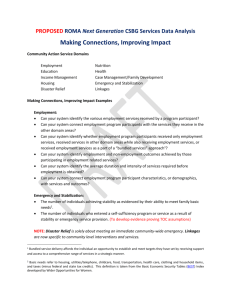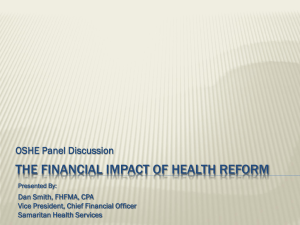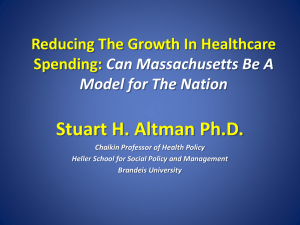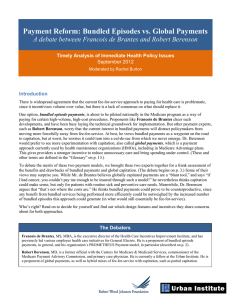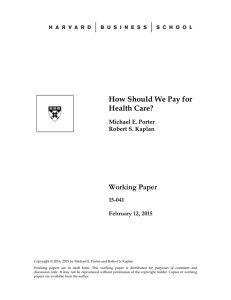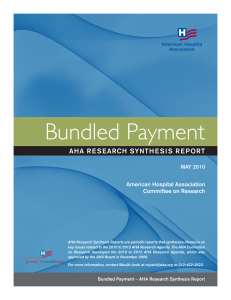The ROI for Bundled Payment Payment Matters:
advertisement
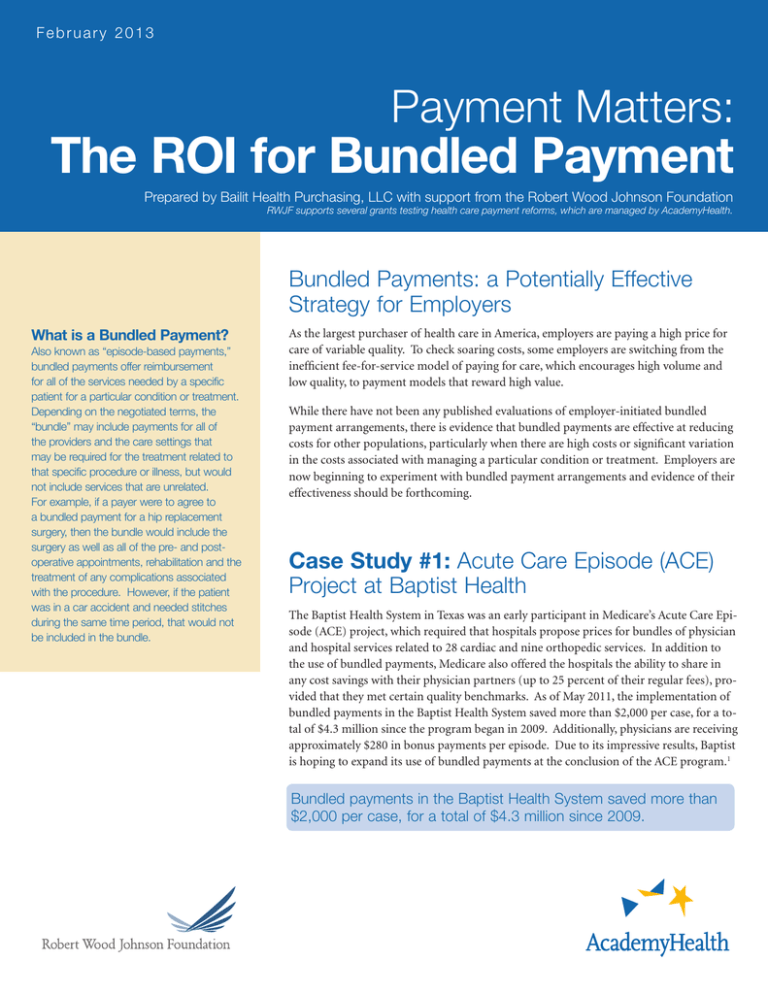
February 2013 Payment Matters: The ROI for Bundled Payment Prepared by Bailit Health Purchasing, LLC with support from the Robert Wood Johnson Foundation RWJF supports several grants testing health care payment reforms, which are managed by AcademyHealth. Bundled Payments: a Potentially Effective Strategy for Employers What is a Bundled Payment? Also known as “episode-based payments,” bundled payments offer reimbursement for all of the services needed by a specific patient for a particular condition or treatment. Depending on the negotiated terms, the “bundle” may include payments for all of the providers and the care settings that may be required for the treatment related to that specific procedure or illness, but would not include services that are unrelated. For example, if a payer were to agree to a bundled payment for a hip replacement surgery, then the bundle would include the surgery as well as all of the pre- and postoperative appointments, rehabilitation and the treatment of any complications associated with the procedure. However, if the patient was in a car accident and needed stitches during the same time period, that would not be included in the bundle. As the largest purchaser of health care in America, employers are paying a high price for care of variable quality. To check soaring costs, some employers are switching from the inefficient fee-for-service model of paying for care, which encourages high volume and low quality, to payment models that reward high value. While there have not been any published evaluations of employer-initiated bundled payment arrangements, there is evidence that bundled payments are effective at reducing costs for other populations, particularly when there are high costs or significant variation in the costs associated with managing a particular condition or treatment. Employers are now beginning to experiment with bundled payment arrangements and evidence of their effectiveness should be forthcoming. Case Study #1: Acute Care Episode (ACE) Project at Baptist Health The Baptist Health System in Texas was an early participant in Medicare’s Acute Care Episode (ACE) project, which required that hospitals propose prices for bundles of physician and hospital services related to 28 cardiac and nine orthopedic services. In addition to the use of bundled payments, Medicare also offered the hospitals the ability to share in any cost savings with their physician partners (up to 25 percent of their regular fees), provided that they met certain quality benchmarks. As of May 2011, the implementation of bundled payments in the Baptist Health System saved more than $2,000 per case, for a total of $4.3 million since the program began in 2009. Additionally, physicians are receiving approximately $280 in bonus payments per episode. Due to its impressive results, Baptist is hoping to expand its use of bundled payments at the conclusion of the ACE program.1 Bundled payments in the Baptist Health System saved more than $2,000 per case, for a total of $4.3 million since 2009. Payment Matters: The ROI for Bundled Payment Case Study #2: Medicare Heart Bypass Center Project Saved Millions In the early 1990’s the Centers for Medicare and Medicaid Services (then known as the Health Care Financing Administration), implemented a bundled payment pilot project called the Medicare Participating Heart Bypass Center Demonstration project. As part of the project, Medicare offered participating hospitals a single price for all inpatient services related to heart bypass surgery. From 1990-1993, the total cost per case fell in three out of the four hospitals as physicians changed their practices to reduce length of stay and overall costs. Over the first 27 months of the demonstration program, the project saved more than $17 million at four participating hospitals.2 In the first 27 months of the program, the bundled payments saved more than $17million at four hospitals. Case Study #3: Employers’ Coalition on Health (ECOH) in Rockford, Illinois is experimenting with Bundled Payments The Employers’ Coalition on Health (ECOH) is an employer coalition that performs group purchasing for its members. Concerned that it needed to do something to address health costs in order to stay competitive in the market, ECOH began searching for options. One member “stumbled across” the PROMETHEUS bundled payment model and, using the positive experiences of non-employer-led initiatives, convinced the coalition to pursue it. In 2011, ECOH began a three-stage “glide path” toward the implementation of their bundled payment program, anticipating significant savings over time for their employer members.3 How You Can Implement a Bundled Payment Program in your Business today. 1.Speak with your plan administrator about their experience with such programs. Many are experimenting with bundled payments, or are making plans to do so. 2.If you have a large concentration of employees in one or more geographies, approach the largest medical group and/or health system that serves your population and ask about their experience with bundled payments, and their willingness to apply their program or develop a new one to serve your employees. 3.Read more about bundled payments in this Health Care Improvement Institute brief. http://www.hci3.org/sites/ default/files/files/HCI-IssueBrief-4-2012.pdf 4.Hear about how employers are working with payers and providers to implement a bundled payment program in this Aligning Forces for Quality (AF4Q) community in South Central Pennsylvania. http://forces4quality.org/ alliance/south-central-pennsylvania#facebook 5.Gather resources from the Aligning Forces for Quality (AF4Q) initiative to help build coalitions and implement payment reform. http://forces4quality.org/a/6/paymentreform#featured-resource Endnotes 1. The Health Industry Forum. “Episode Payment: Private Innovation and Opportunities for Medicare” Conference Report, Brandeis University, May 17, 2011, Washington, DC, available at http://healthforum.brandeis.edu/meetings/ materials/2011-17-may/Final%20cr5-17-11.pdf. 2. Cromwell J, Dayhoff DA and Thoumaian AH. “Cost Savings and Physician Responses to Global Bundled Payments for Medicare Heart Bypass Surgery” Health Care Financing Review, 9(1): 41-57, fall 1997, available at www.ncbi. nlm.nih.gov/pubmed/10180001. 3. www.nbch.org/PPR-Case-Study---Bundled-Payment---PROMETHEUS (accessed January 16, 2013).

